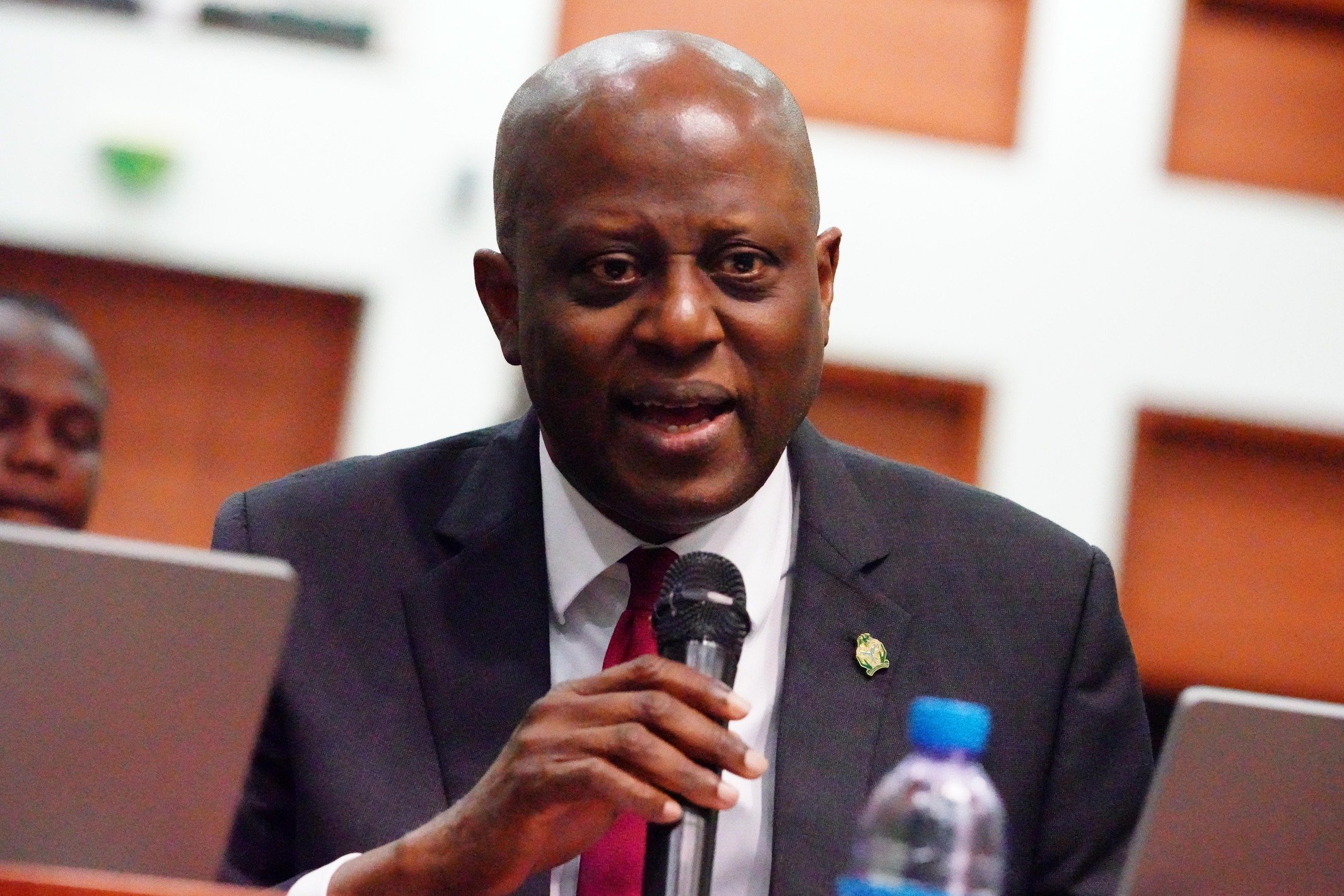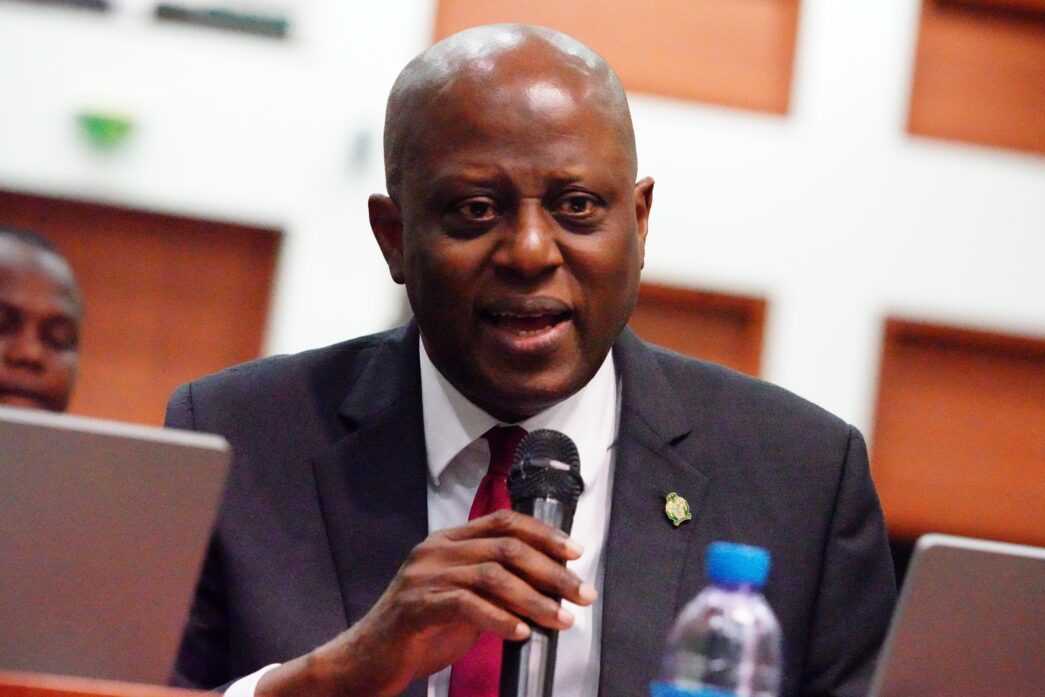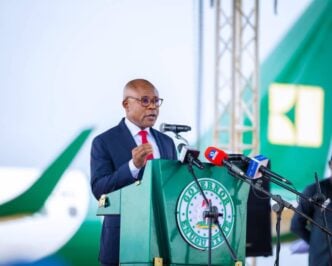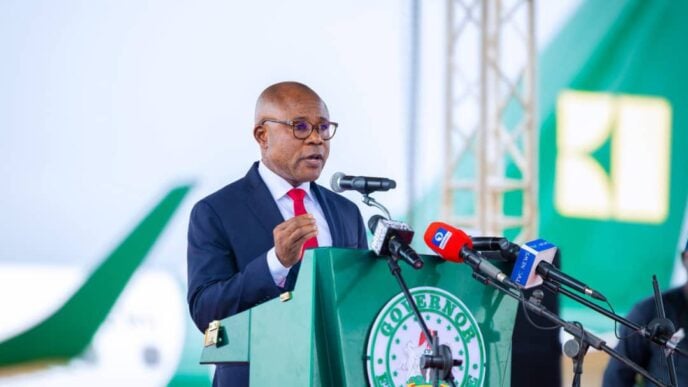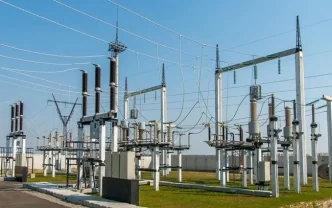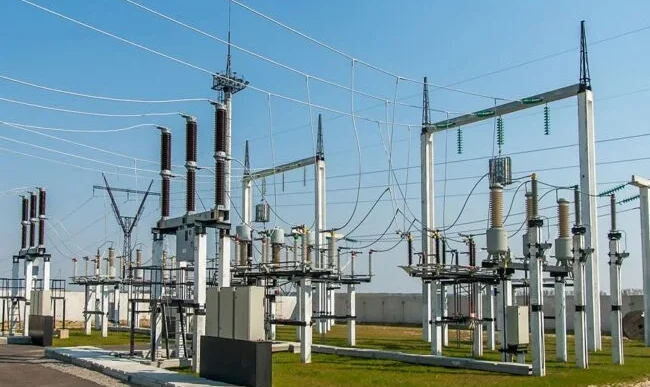In 2024, Aliko Dangote, chairman of the Dangote Group, confirmed that the Dangote Group secured $5.5 billion domestic loan to build the Dangote Refinery. This would not have been possible without the 2004 bank consolidation, which was led by Professor Chukwuma Soludo, who was then governor of Nigeria’s central bank. The 2004 bank consolidation exercise still remains one of the most fundamental reforms in the history of Nigeria.
Today, the current governor of the nation’s central bank, Olayemi Cardoso, has launched a bank recapitalization drive which will also catapult the Nigerian economy and cause the kind of fundamental change that was seen after the 2004 bank consolidation exercise. With the current growth of the nation’s foreign reserve and Cardoso’s bank recapitalization drive, the Nigerian economy will witness fundamental positive changes as was observed between 2004 – 2010, with growth peaking at 9.25% in 2004. (Under President Tinubu’s administration, monetary and fiscal policies are beginning to align and Nigeria’s macroeconomic environment is becoming more stable).
Before 2004, the total bank credit to the economy – i.e. amount of money banks loaned to businesses – was roughly $8.2 billion. After the Soludo-led consolidation, by February 2009, the total credit to the economy from Nigerian banks ballooned to $55.99 billion. Surprisingly, in 2024, according to CBN reports, the total credit to the economy by Nigerian banks, using 2024 exchange rates, was still at $51.9 billion. But all these will change with Cardoso’s drive which is geared towards aggressive growth.
In 2004, the rationale behind Soludo’s 18-month bank consolidation exercise was to build robust, resilient, and globally competitive banks that could drive economic growth. And he achieved his objectives. Today, Olayemi Cardoso’s two-year recapitalization drive (April 2024 to March 2026) aims to achieve economic and financial stability in order to align the nation’s banking capacity with the country’s ambitious $1 trillion economy vision by 2030. This is the right way to go.
Advertisement
Fundamentally, just like Soludo’s reform, Cardoso’s reforms are intended to build Tier 1 capital of banks and not their asset base, as a bank’s Tier 1 capital are its core equity and is made up of paid-up share capital, share premium, and disclosed reserves. This capital base represents the first line of defence against financial shocks.
In Cardoso’s recapitalization plan, the updated capital requirement for banks intending to carryout international banking is N500 billion, for those intending to carryout national banking is N200 billion and for regional banking activities it is N200 billion. So far, through their current public and private share issues, Access Bank and Zenith Bank have surpassed the N500 billion capital threshold required for international banking operations. Other Tier 1 banks (i.e. very large Nigerian banks which are also referred to as Systemically Important Banks – SIBs) are in the process of achieving this N500 billion international banking threshold.
Under the current central bank’s capital accretion exercise, Nigerian banks can raise capital via rights issues, public offers, private placements, mergers or acquisitions, or even downgrading license categories. (Their retained earnings are excluded).
Advertisement
With this plan, Nigerian banks will be able to finance large-scale projects in oil & gas, infrastructure, power, agriculture, and technology. This implies that many more viable projects with scale similar to that of the Dangote Refinery can come on stream. It will also boost the lending capacity of Nigerian banks to MSMEs, women entrepreneurs, and rural communities – groups historically under-served. These are the big ideas required to catapult the Nigerian economy.
Cardoso’s recapitalization drive will attract Foreign Direct Investments (FDI) into Nigeria’s economy. Currently, the central bank’s recapitalization exercise is bringing in new capital into the system (i.e. through rights issues, private placements, Eurobonds, international stock market listings, etc.). More foreign exchange inflow will support the nation’s macroeconomic stability and trade.
The current bank recapitalization drive will make Nigerian banks stronger and competitive in Africa and this move brings Nigeria closer to Basel III capital adequacy standards. In terms of Tier 1 capital (i.e. the buffer of real money available to absorb losses and protect depositors). Today, most Nigerian banks are not up to a fifth of South Africa’s Standard Bank Group which has a Tier 1 capital base of $12.5 billion. (Basel III is a global regulatory framework developed by the Basel Committee on Banking Supervision (BCBS) after the 2008 global financial crisis in order to make banks more resilient, reduce systemic risks, and protect economies from future banking crises.)
Just like the days of Soludo, the current administration at the central bank is taking the decisions required to put Nigeria on the path of prosperity. The nation’s central banks must be supported to transform the Nigerian economy.
Advertisement
Views expressed by contributors are strictly personal and not of TheCable.

